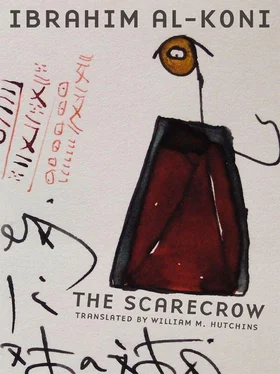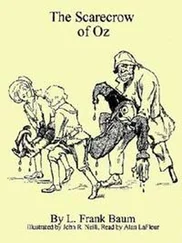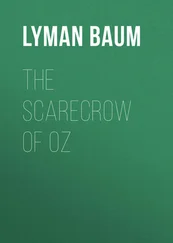The chief merchant leaned over the pebbles, which had colors that people of the desert usually found only in beads, and covered this pile with the palm of his other hand. He began to crush the pebbles together between his two hands as if this were a ritual associated with some magic spell.
The members of the council fell prey to despondency, but Amasis the Younger waddled toward the chief merchant, dropped to his knees, and stuck out his neck to scrutinize his neighbor with a very long, inquisitive look, which not only suggested curiosity but also the suspicion that leaps from the eyes of people when they converse with individuals of dubious mental acuity. Finally Amasis, as if whispering a blandishment into the ear of a girlfriend, asked, “What are you trying to say?”
Stillness overwhelmed the council, and the members’ fingers ceased furrowing the dirt, fiddling with pieces of stone, or fingering the hems of their garments. This time the men held their breath — not to quench the thirst of base curiosity, which can never be quenched, but from a desire for the wisdom hidden in the folds of a proverb and from their yearning to acquire the truth to which the Law’s counsel alluded.
At that hour, the cunning strategist realized that the time had come, because his slow deliberation had realized its goal and hearts had emptied of the markets’ babble and of worldly whispers. Purity had washed their hearts and prepared people to learn. So he spoke.
As he clenched his fist around his amulet and gazed at the elders even more mysteriously, he said, “Beware of binding the cord of insanity round the neck of anyone you love!”
As if waving his protest in the face of the man seated there, Imaswan Wandarran sprang into the debate: “What does this mean? What are you trying to say?”
“If you allow one among you to go there, you should realize that you will lose him forever — just as you lost poor Aggulli.”
“Aggulli was stubborn, arrogant, and duplicitous.”
“Everyone who goes to sit on that ill-omened throne will be stubborn, arrogant, and duplicitous.”
“What’s the secret reason for that, I wonder? Is it reasonable for one of us to lose his reason when he gains that title, even though he knows the whole affair from start to finish is nothing but a game within a game?”
“We will find an excuse for the wretch when we learn that he acts involuntarily.”
“Did you say ‘involuntarily’?”
“Our life in the desert lands is a game, but life in the spiritual lands is never a game. The man who goes to sit on the sovereign’s throne is possessed by inhabitants of the Spirit World. He must see things with the eye of the Spirit World, not with the eye of the wasteland’s people. This is where the calamity starts, because the wretch must believe a matter that we see by the Law of this worldly life to be a lie. So from the day the haunted piece of cloth becomes part of him, he becomes a puppet in the hand of the Spirit World, which does not see that life is a game, that the sovereign is a puppet, or that there is no place in its Law for anything besides a seriousness that surpasses by many times the seriousness we boast of. Our error comes from treating the sovereign as if he were the person we knew yesterday. We do not realize that he isn’t merely another man — who bears no relationship to the man we used to know — but that he retains no relationship to any part of our world. From today forward we must be aware that the man we choose to command us is not simply lost to us forever but becomes another creature who never knew us and whom we haven’t previously known. For this reason, we shouldn’t expect compassion or any good from him. Indeed, we ought to expect evil. So will you insist on turning one of our peers, whose presence with us in this council delights us, into our worst enemy?”
Imaswan Wandarran turned toward his fellows and glanced absentmindedly at their faces in turn as if waiting for one of them to bring him an argument quickly or to take his side in the debate.
Finally he moved to confront his adversary with a painful question: “If what you say is true, then we treated our late comrade very unjustly.”
The man with two veils responded with a courage that the tribes were unaccustomed to hearing from the tongues of merchants: “Do you doubt that?”
“Are we murderers?”
“Do you doubt that?”
Imaswan looked at his mates’ faces in succession as if appealing for help, but their countenances were stern, mute, glum, expressionless masks, as if the jinn had replaced his friends and inserted creatures of their ilk into the council. He turned to confront the seated man again and stared at his face for a long time, as if seeing him for the first time.
In a peculiar tone he asked, “Do you remember the day when you surrounded us with proletarian armies who demanded that we leave the affairs of the dead to the dead and appoint the living to oversee the living?”
The chief merchant nodded his head yes but did not stop playing with the handful of pebbles in the palm of his left hand. So Imaswan resumed his questioning in the same tone: “I asked you then where you had come from, but you did not reply. Can you answer me today?”
The seated man looked up from his game inquisitively. Then Imaswan leaned toward him as if intending to butt him with his turbaned head. Staring at him provocatively, he asked, “Who are you? Who are you?”
The man with two veils shot him a proud, disparaging glance. Then he turned his attention back to the bits of rock. But Imaswan did not yield. With childish insistence he asked again, “Tell me: are you really one of the people of the wasteland or are you one of the people of the Spirit World?”
2
“If what you say about the sovereign is correct, how was our leader who sleeps in the neighboring tomb able to assume leadership one day with a finesse that hostile tribes acknowledged even before the tongues of the generations forwarded that praise — without being afflicted with the Spirit World’s lunacy, which you discussed?”
The council members backed Ah’llum with a murmur of approval while the hero thrust his hand into his pocket to pull out the dark scrap of cloth that he used to daub his eyes during anxious moments — on the advice of the herbalist, who had claimed that the fabric, which was saturated with blue dye, had a magical effect and could relieve pain temporarily from his eyes and over time would heal their underlying ailment.
The council had convened many times in the temple, and the members’ voices had been raised in dispute there. The sessions had been dissolved just as frequently, without the members reaching a consensus on a new governor. Neither the logic of the chief merchant nor the adage of this inscrutable man (whom they had found among them one day without knowing where he had come from or to which clan he belonged) disturbed them so much as their comrade Aggulli’s fate, which seemed to presage their own, should a thirst for sovereignty get the better of them and they aspire to become the ruler.
On this day, when they reconvened, they discovered for the first time that whispers and doubts had demoralized them. They listened apprehensively to each other and were wary about what was said, as one comrade looked at another with a cautious eye.
Before the man with two veils rushed to respond, the hero asked him for a slight clarification: “You should realize that I’m not discussing the characteristics of the leader of yesteryear to rehash the generation’s legends or to confirm the views of the masses, who did not know him. I said what I said, because the Spirit World rewarded me by making me a member of this noble council when I was young.”
The chief merchant glared at him malevolently. He toyed with the edge of his lower veil to mask his reaction before he responded to the question with a question: “Did you find in the late leader the traits of leadership during all the time you associated with him?”
Читать дальше












